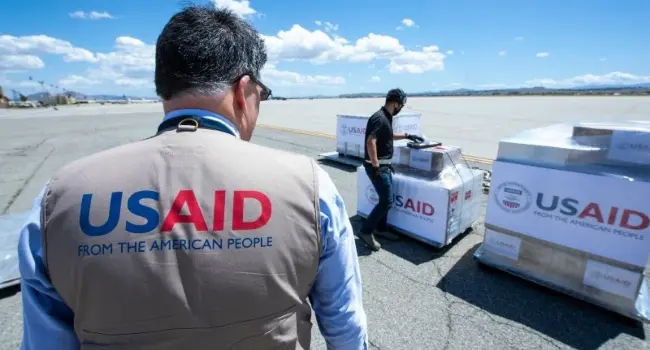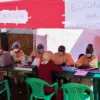The Joint United Nations Programme on HIV/AIDS (UNAIDS) says the distribution of condoms for HIV prevention in Nigeria dropped by 55 per cent between December and March, reflecting what it calls widespread disruption to prevention, testing, and community-based services across dozens of countries.
The figures were released Tuesday in UNAIDS’ 2025 World AIDS Day report, Overcoming Disruption, Transforming the AIDS Response. The agency said millions of people have been affected by funding cuts to global HIV programmes since Donald Trump returned to the White House, with an unknown number of additional deaths and 2.5 million people losing access to medication that helps prevent HIV transmission.
“Persistent funding shortfalls and the perilous risks facing the global HIV response are having profound, lasting effects on the health and well-being of millions of people throughout the world,” the report warned.
For countries like Nigeria—where donor support underpins much of the prevention infrastructure—the impact has been “immediate and severe.” Community partners reported deaths linked to the closure of clinics and treatment centres, though UNAIDS said precise data is still being compiled.
The crisis deepened earlier this year when the United States, which previously supplied 75% of all international HIV funding, temporarily froze all HIV-related assistance. Several European donors also sharply reduced foreign aid after being pressed to shift resources toward defence.
Although some programmes have resumed through PEPFAR, the U.S. President’s Emergency Plan for AIDS Relief, overall HIV funding remains in decline, placing 2030 global targets at risk.
UNAIDS Executive Director Winnie Byanyima told journalists in Geneva that the agency is working with more than 30 countries to strengthen domestic health financing and reduce reliance on foreign donors. But she cautioned that the funding gap cannot be closed quickly.
According to the report, 40.8 million people are living with HIV worldwide, and 1.3 million new infections were recorded in 2024.
UNAIDS also highlighted steep declines in access to preventive medicine. As of October 2025, 2.5 million people had lost access to PrEP, the HIV-prevention drug, due to donor cuts. Distribution of preventive medicines dropped by 31% in Uganda, 21% in Vietnam, and 64% in Burundi.
A survey conducted this year by UNAIDS and the ATHENA Network found nearly half of women and adolescent girls had experienced disruptions in HIV prevention or treatment services.
Globally, HIV infections have fallen 39% since 2010, with sub-Saharan Africa achieving a 56% reduction. However, 1.3 million people still acquired HIV in 2023—more than triple the 2025 target of 370,000.
The report warns that declines in condom distribution and the defunding of social marketing schemes are contributing to reduced condom use, particularly among young people. Only 36% of adults in eastern and southern Africa and 25% in western and central Africa used a condom during their last sexual encounter.
A deepening funding crisis threatens further progress. About US$19.8 billion was available for HIV programmes in low- and middle-income countries in 2023—almost US$9.5 billion short of the amount required by 2025. Adjusted for inflation, HIV funding is at its lowest level in more than a decade. Domestic financing has fallen for four consecutive years, while international funding is nearly 20% below its 2013 peak.
The report notes that the reductions would have been far worse without continued support from the Global Fund and the US government.
UNAIDS criticised chronic underfunding of prevention, community-led programmes, and interventions for key populations, despite these groups accounting for the majority of new infections. Only US$1.8–2.4 billion was available for primary prevention in 2023, far below the US$9.5 billion needed by 2025.
The agency urged world leaders to renew their political and financial commitments, citing pledges made at the recent G20 summit in South Africa. It called for greater investment in innovations such as affordable long-acting prevention methods and renewed protection of human rights and community-led responses, which it said remain “central to any effective HIV response.”


